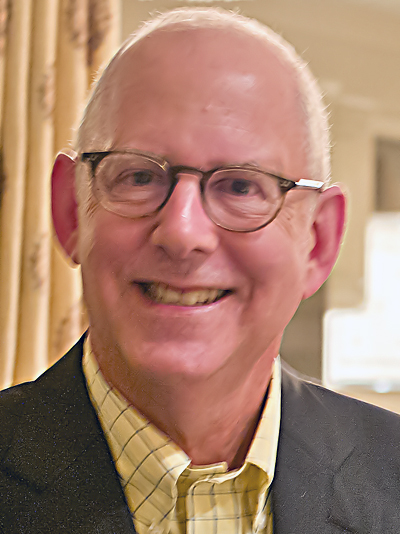A message to patients

PHOTO BY ARTHUR J MEYERSON
I have been a doctor for over 40 years, and in the course of this period have participated in the care of thousands of patients. In 1997 I became a patient myself with a rare type of metastatic sarcoma (a type of cancer) and went through the ordeal of several extensive surgeries and intense chemotherapy. The experience of being a chronic patient with a serious disease greatly enhanced my perspective on being a doctor. Some of these thoughts I share with you today:
The doctor should always try to be the champion for patient health and well-being, and try to keep up with the latest developments, issues and policies, insisting on using the same consultants and referrals for patients as for ones own family. Doctors should always try to see themselves in their patient's shoes,that we are each vulnerable humans in a world that does not always present to us a friendly set of circumstances. The inner feeling of self-confidence achieved through these processes will help earn and retain the respect and trust from patients; trust is essential for being an effective practitioner.
Health care is rough; it deals with complexity, uncertainty and expense and is dependent upon an ever-advancing technology, the political climate and access availability. We are on the verge of many therapeutic breakthroughs, each packaged with hope, but also lined with letdowns. There are multiple barriers and obstacles scattered like land mines on the path to good care. The doctor and the patient should realize that their goal is really the same, circumnavigate the barriers to excellence, and stay focused on the goal of the best health possible for the patient. To this end a physician should always champion what AAKP has historically represented, to make the lives of patients better. As a patient you should always demand excellence, nothing less will work, and you cannot go backward.
Find a champion
The most important lesson I learned was to be a champion for the patient and find champions as a patient. Doctor-patient discussions should center on the principles of good care to the point that staying on a healthy course,be it planning a course of treatment, adhering to a diet, taking a medication or sticking to a therapy schedule, is based on willingness. The patients that I have had to beg to take their medications and watch their fluids always did worse than those who had the initiative, motivation and insight to follow the physician's health prescription on their own. As both a patient and a doctor, I urge you to try to be in the latter group.
Be proactive
The second most important lesson I have learned is that we are not invincible, maybe lucky, but all are very fragile. What we do in youth will reiterate throughout our lives. So often I would see a patient late in the course of end stage disease, broken down by heart failure and uncontrolled diabetes, too sick to have a meaningful quality of life. Yet, much of what incapacitated this patient was at one time reversible; it could have been treatable if caught early and managed well. My wish for that patient was always that if our encounters were twenty years earlier, things might have turned out differently. When faced with such a patient I would transfer my despair to energy, and try to urge the younger and healthier next patient to make only wise choices pertaining to health, never to do something today that will be regretted in the future. The sicker patients have always supercharged me to strive to prevent the preventable, being proactive with respect health's ugly challenges, both for my patients as well as myself. It will be up to the next generation of doctors to determine if I was successful for my patients.
Commitment
The final lesson is one I learned long ago, It is easier to be a doctor than a patient. What this means is that the twenty to forty minutes the doctor spends with the patient cannot substitute for the immense commitment the patient must make to good care. Staying healthy means understanding the principles of good health well enough that one will embed them in their lifestyle. Consistent attentiveness to good health is challenging, but essential to meeting the goals for good care. Ask questions, but use the answers to reinforce your personal commitment to being the best you can.
Stephen Z. Fadem, M.D., FASN
